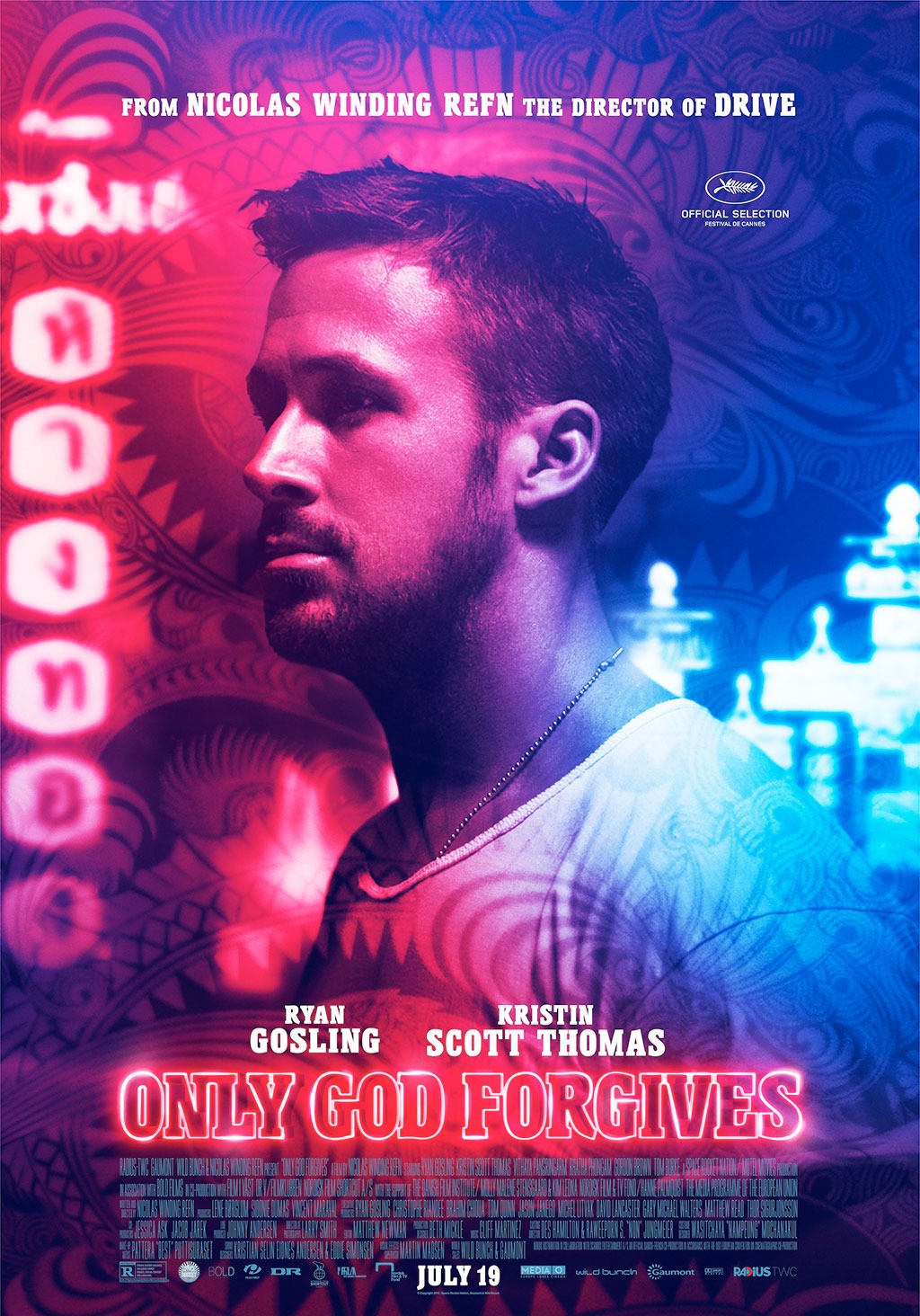Only God Forgives: Why Refn’s latest picture is a misunderstood masterpiece
 Only God Forgives is the latest film entry from Danish director Nicolas Winding Refn, and while it’s getting almost universally panned by critics for being dull and overly ultra-violent, its true brilliance lies not in its content but in its cinematic execution. I’ll try and keep this as spoiler-free as possible, but if you haven’t seen the film yet you might want to do that before you continue reading.
Only God Forgives is the latest film entry from Danish director Nicolas Winding Refn, and while it’s getting almost universally panned by critics for being dull and overly ultra-violent, its true brilliance lies not in its content but in its cinematic execution. I’ll try and keep this as spoiler-free as possible, but if you haven’t seen the film yet you might want to do that before you continue reading.
A brief synopsis then: within the movie’s first ten minutes, drug dealer Julian’s (Ryan Gosling) brother, Billy, rapes and murders a sixteen-year-old girl and is then beaten to death by the girl’s father, the aftermath of which is depicted as brutally as it sounds. The girl’s father is then punished for the crime by katana-wielding Bangkok lawman Chang (Vithaya Pansringarm), losing an arm as a sign of castration. For Julian and his mother, Crystal (venomously portrayed by Kristin Scott Thomas), this is an injustice to their rapist relative, and so begins eighty-or-so minutes of increasingly macabre scenarios as the pair set out to kill Chang.
From beginning to end, Only God Forgives walks in the neo-noir boots of Refn and Gosling’s previous collaboration, Drive (2011); the violence is more accentuated here, it’s shot almost entirely under blood-red artificial neon lights, and the synth-riddled score returns, though it’s used much more as a tone-setter than as a soundtrack in this instance. Unlike Drive however, Only God Forgives isn’t concerned as much with its narrative, a bump which is probably responsible for throwing most people off the wagon.
Instead, Refn’s directing and cinematography play a massive part in making every scene a slow-burner. The intensity of long, drawn-out shots of actors’ expressionless faces will surely thrill those who are willing to engage with the movie as much as it confuses those who are out on a hedonistic venture. The film’s running time is also spent mostly under film noir lighting (or lack thereof), with aforementioned red neon invading every scene. This helps the sombreness of the film, giving it a dark identity of its own so it can move away from obvious Drive comparisons.

In keeping with this theme, Gosling, as well as most of the other cast members, speak about a page of dialogue between them in ninety minutes. Not only that, but the choreography is almost catatonic; characters move rigidly and apparently in slow motion, and interactions between them are filled with extensive pauses and devilish staring contests. Whilst many critics have unfairly and inaccurately pinned this on Gosling’s “laziness” after his recent stardom, it’s obvious by the film’s end that the hypnotising demeanour of the characters plays into the viewer’s inability to differentiate between the real and the surreal. Many will find this a little bit too much for a recreational viewing, but Kristin Scott Thomas’s fiery “cum dumpster” scene might save some from drifting off.
The real juice of the movie, though, is in the themes that it explores. From a psychoanalytical standpoint, it’s a gold mine. I mentioned castration earlier, well the removal of the ‘phallus’ from some characters (and the subsequent loss of any dialogue, which is power in this film) is referenced visually throughout. And in true Freudian style, Julian even ‘enters’ his mum’s bloodied corpse with his fist. I’ll let you finish painting that picture.
But the crux of Only God Forgives is found in the title. The religious themes it explores aren’t apparent, but they are vital to fully appreciate the movie. Julian’s willingness to ‘take on God’, so to speak, is subtly emphasised, similarly to that of No Country For Old Men. Man’s inability to compete with otherworldly forces such as God (represented here by Chang) or Death is interesting and raises a lot of engaging questions. Most importantly, Only God Forgives is, from what I could tell, a moral teaching without being explicitly religious. It decides to just be downright explicit instead.
While it shares many aspects with its cousin Drive, then, Refn’s latest effort is one to be torn apart over again, much like many of its unfortunate characters. Some of its criticism is understandable from a popcorn-chomper’s point of view, but it’s wholly unfair, and Only God Forgives is about as close to art as a movie can get: not only has Refn created his own brand of film-making, he’s done it bloody well.
